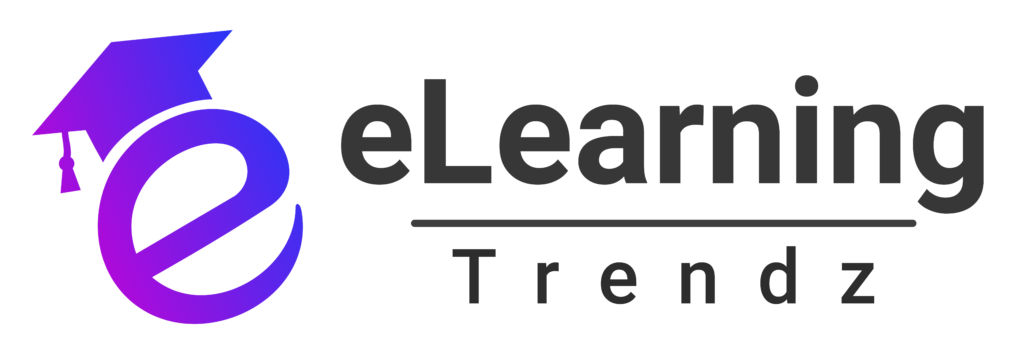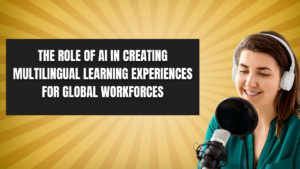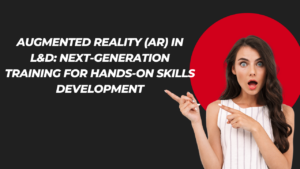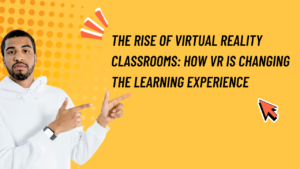Learning Management Systems (LMS) have become an essential tool in modern education and corporate training. As organizations and educational institutions strive to enhance the learning experience, technology continues to drive innovation within the LMS space. The adoption of emerging technologies is revolutionizing how learning is delivered, managed, and tracked.
According to a 2023 report by PwC, 60% of companies are adopting advanced technologies like AI and machine learning to optimize training and development, leading to more personalized and effective learning experiences.
In this blog, we’ll explore 5 emerging technologies that are reshaping the future of LMS platforms, making training smarter, more engaging, and data-driven.
Artificial Intelligence (AI) and Machine Learning
Best for: Personalized Learning Paths
Artificial intelligence (AI) and machine learning (ML) have taken the world by storm, and their integration into LMS platforms is transforming how learning is personalized and managed. AI helps LMS platforms create adaptive learning paths tailored to individual users, considering their learning pace, strengths, and weaknesses. This makes the learning experience more effective and ensures learners stay engaged by receiving the right content at the right time.
Key Benefits:
- Personalized Learning: AI analyzes user data to recommend personalized learning paths, ensuring a customized experience.
- Smart Content Curation: AI tools curate relevant content based on a learner’s progress and interests.
- Predictive Analytics: AI can predict learning outcomes and suggest interventions for learners at risk of falling behind.
According to McKinsey, AI-driven learning systems can increase employee productivity by up to 40%. This technology is pivotal for organizations aiming to optimize employee development and improve overall business outcomes.
Virtual Reality (VR) and Augmented Reality (AR)
Best for: Immersive Learning Experiences
Virtual Reality (VR) and Augmented Reality (AR) are rapidly gaining traction in the world of LMS platforms, particularly in fields that require hands-on training like aviation, healthcare, and engineering. These technologies allow learners to immerse themselves in realistic simulations, creating an engaging, interactive, and safe learning environment.
Key Benefits:
- Simulated Environments: VR allows learners to interact with 3D simulations, enhancing practical learning, while AR can overlay virtual information on the physical world for real-time learning.
- Improved Retention: Studies by PwC show that VR training can lead to four times the retention rates compared to traditional learning methods.
- Cost-Effective Training: Reduces the need for physical materials and on-site training, cutting down costs while improving learning outcomes.
For industries requiring real-world application of skills, VR and AR offer unparalleled training opportunities that help learners gain critical experience without real-world risks.
Blockchain Technology
Best for: Secure Credentialing and Tracking
Blockchain technology is becoming increasingly important in the LMS space, especially when it comes to credentialing, certification, and tracking learners’ achievements. Blockchain’s decentralized and immutable nature ensures that certifications and credentials are securely stored, verified, and easily accessible. This technology is revolutionizing how organizations and institutions validate learning outcomes.
Key Benefits:
- Immutable Records: Blockchain ensures that certificates and credentials cannot be tampered with, guaranteeing authenticity.
- Decentralized Learning Records: Learners can maintain control over their learning records, allowing them to share or transfer their credentials as needed.
- Enhanced Transparency: Employers and institutions can verify the authenticity of qualifications and training certificates instantly.
The global blockchain in education market is projected to reach $2.3 billion by 2028, according to a Market Research Future report, showing its growing importance in the credentialing and education sectors.
Gamification and Game-Based Learning
Best for: Engaging Learners through Interactive Content
Gamification and game-based learning are not new, but they are becoming increasingly sophisticated with the advancement of LMS technologies. By integrating game mechanics such as points, badges, leaderboards, and challenges into learning processes, LMS platforms are turning education into a more engaging and interactive experience.
Key Benefits:
- Increased Engagement: Gamification encourages learners to stay motivated and invested in their progress through rewards and challenges.
- Real-Time Feedback: Learners receive immediate feedback on their performance, which helps improve retention and performance.
- Competition and Collaboration: Leaderboards and team-based challenges encourage healthy competition and collaboration among learners.
According to Deloitte, gamification increases employee engagement by 48%, which directly translates into improved learning outcomes and productivity. Thus, it is a key feature in modern LMS platforms.
Natural Language Processing (NLP)
Best for: Enhancing Learner Interactions with Chatbots and Virtual Assistants
Natural Language Processing (NLP) is enabling LMS platforms to provide more interactive and user-friendly experiences. NLP allows systems to understand and interpret human language, making it easier for learners to interact with the system using voice commands, chatbots, and virtual assistants. This technology helps create a more conversational and engaging learning environment.
Key Benefits:
- Conversational Learning: Learners can interact with the system using natural language, making it more intuitive and accessible.
- AI-Powered Support: NLP-driven chatbots and virtual assistants provide 24/7 support, answering questions, guiding learners, and offering personalized recommendations.
- Content Accessibility: NLP can convert text-based content into different formats, making learning materials more accessible to a wider audience.
A study by Gartner reveals that 70% of organizations will use chatbots for customer support and training by 2023, underscoring the growing importance of NLP in learning environments.
Conclusion
Emerging technologies are fundamentally reshaping the landscape of Learning Management Systems (LMS), making learning more engaging, personalized, and efficient. From AI and machine learning enabling adaptive learning paths to VR/AR offering immersive training experiences, these innovations drive the future of education and corporate training. As organizations seek to enhance employee skills, streamline training processes, and stay ahead of industry trends, adopting these technologies will be essential for success.
By embracing these cutting-edge tools, organizations can ensure their workforce is equipped with the most relevant skills in an ever-changing world. Get ahead of the curve by integrating these technologies into your LMS and offer your employees a more dynamic, efficient, and personalized learning experience.










